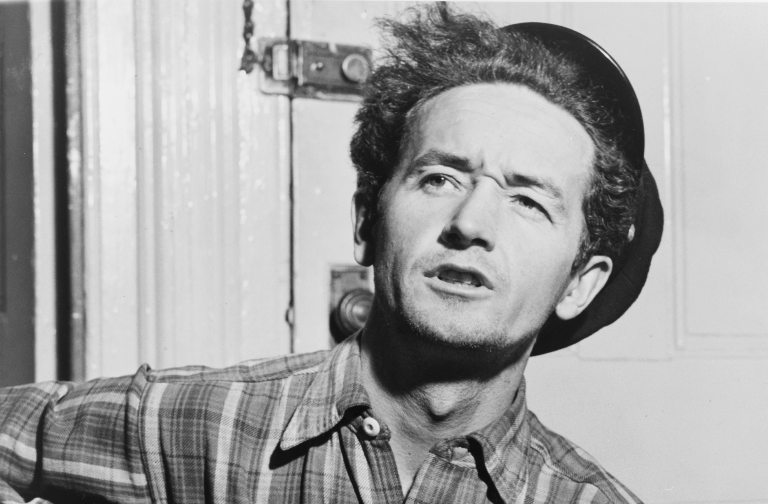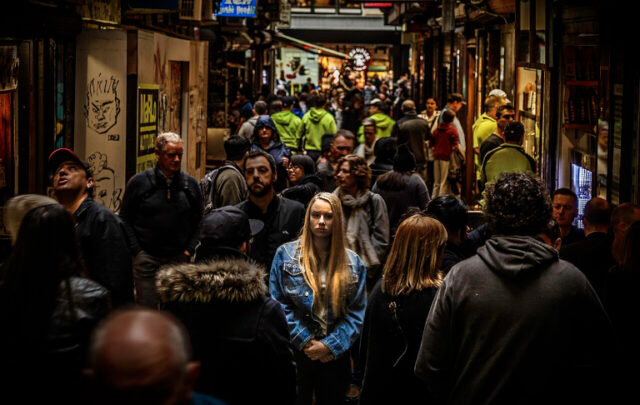Something sinister and horrifying is happening to liberal democracies all over the globe. Democratic institutions, such as the independent media, schools, the legal system, certain financial institutions, and higher education are under siege worldwide. Some of the latest examples of this can be found in the resurgence of vigilantes and right-wing militia groups along the southern border and the intrusion of tech-based educational practices into schools producing curricula that some parents claim turn kids into zombies. Trump’s continued attack on higher education offers another highly visible example: His proposed 2020 budget request would enact a staggering $7.1 billion reduction in the Education Department as part of a policy to dismantle the department itself.
The promise of democracy is receding as present-day fascists work to subvert language, values, courage, vision and a critical consciousness. Education has increasingly become a tool of domination as the entrepreneurs of hate deploy right-wing pedagogical apparatuses to attack workers, Black youth, refugees, immigrants and others they consider disposable. In the midst of a moment when an older social order is crumbling and a new one is struggling to define itself, there emerges a moment of confusion and danger. We are once again at a historical juncture in which the structures of liberation and authoritarianism are vying over the future.
The history of the present has reached a point when, in the words of Peter Thompson, “possibilities are either realized or rejected but never disappear completely.” Two worlds are colliding: First, as a number of scholars have observed, there is the harsh and crumbling world of neoliberal globalization and its mobilizing passions that fuel different strands of fascism across the globe, including the United States. Power is now enamored with amassing profits and capital and is increasingly addicted to a politics of white nationalism and racial cleansing. Second, as Charles Derber argues in Welcome to the Revolution, there is the world of counter movements, which is growing especially among young people, with their search for a new politics that can rethink, reclaim and invent a new understanding of democratic socialism, untainted by capitalism.
What is not in doubt is that all across the world, the global thrust toward democratization that emerged after World War II is giving way once again to authoritarian tyrannies. As alarming as the signs may be, the public cannot look away and allow the terrors of the unforeseen to be given free rein. Those who believe in democratic socialism cannot allow the power of dreams and militant hopes to turn into nightmares.
Resisting Fascism Requires Making Education Central to Politics
It is hard to imagine a more urgent moment for making education central to politics. If we are going to develop a politics capable of awakening our critical, imaginative and historical sensibilities, it is crucial for educators and others to develop a collective language of critique and possibility. Such a language is necessary to enable the conditions to forge a collective international resistance among educators, youth, workers, artists and other cultural workers in defense of public goods. Such a movement is important to resist and overcome the tyrannical fascist nightmares that have descended upon the United States, Brazil and a number of other countries in Europe plagued by the rise of neo-Nazi parties. In an age of social isolation, information overflow, a culture of immediacy, consumer glut and spectacularized violence, it is all the more crucial to take seriously the notion that a democracy cannot exist or be defended without informed and critically engaged citizens.
Education, both in its symbolic and institutional forms, has a central role to play in fighting the resurgence of fascist cultures, mythic historical narratives and the emerging ideologies of white supremacy and white nationalism. Moreover, at a time when fascists across the globe are disseminating toxic racist and ultra-nationalist images of the past, it is essential to reclaim education as a form of historical consciousness and moral witnessing. This is especially true at a time when historical and social amnesia have become a national pastime, particularly in the United States, matched only by the masculinization of the public sphere and the increasing normalization of a fascist politics that thrives on ignorance, fear, hatred, social cleansing, the suppression of dissent and white supremacy. Education as a form of cultural work extends far beyond the classroom, and its pedagogical influence, while often imperceptible, is crucial to challenging and resisting the rise of fascist pedagogical formations and their rehabilitation of fascist principles and ideas.
Against a numbing indifference, despair or withdrawal into the private orbits of the isolated self, there is a need to create those cultural apparatuses and formative cultures that do the pedagogical work of promoting civic courage, fostering the capacity to listen to others, sustaining complex thoughts and engaging social problems. We have no other choice if we are to resist the increasing destabilization of democratic institutions such as those regulatory institutions that provide for people’s basic needs and their personal and political rights. In addition, there is also the need to resist the increasing assault on reason, the collapse of the distinction between fact and fiction, and the taste for brutality that now spreads like a plague across a number of countries, including the U.S.
The pedagogical lesson here is that fascism begins with hateful words, the demonization of others considered disposable, and moves to an attack on ideas, the burning of books, the disappearance of intellectuals, and the emergence of the carceral state and the horrors of detention jails and camps. As a form of cultural politics, critical pedagogy provides the promise of a protected space within which to think against the grain of received opinion, to question and challenge, to imagine the world from different standpoints and perspectives, to reflect upon ourselves in relation to others and, in so doing, to understand what it means to “assume a sense of political and social responsibility.”
Let’s Reverse the Neoliberal Dismantling of Public Education
Cultural politics in the last 20 years has turned toxic as ruling elites increasingly gain control of commanding cultural apparatuses, turning them into pedagogical disimagination machines that serve the forces of ethical tranquilization by producing and legitimating endless degrading and humiliating images of the poor, immigrants, Muslims and others considered excess, as wasted lives doomed to terminal exclusion. The capitalist dream machine is back with huge profits for the ultra-rich, hedge fund managers and major players in the financial service industries. In these new landscapes of wealth, and fraud, and social atomization, a brutal and fanatical capitalism promotes a winner-take-all ethos, a culture of cruelty and white nationalism, aggressively undermining the welfare state while pushing millions into hardship and misery. The geographies of moral and political decadence have become the organizing standard of the dream worlds of consumption, privatization, surveillance and deregulation. Within this increasingly fascist landscape, public spheres are replaced by zones of social abandonment and thrive on the energies of the walking dead and avatars of cruelty and misery. Education within the last three decades has diminished rapidly in its capacities to educate young people and others to be reflective, critical and socially engaged agents. Under neoliberal regimes now flirting with white supremacy, the apostles of authoritarianism have deemed the utopian possibilities formerly associated with public education as too dangerous to go unchecked. Increasingly public schools — which could have such a radical potential to promote social equality and support democracy — are falling subject to the toxic forces of privatization and mindless standardized curricula, while teachers are subjected to intolerable labor conditions. Higher education now mimics a business culture run by a managerial army of bureaucrats, drunk on market values, who resemble the high priests of a deadening instrumental rationality. The commanding visions of democracy are in exile at all levels of education.
The struggle, however, is far from over. The good news is that there is an increasing wave of strikes by teachers, public servants, and workers both in the United States and abroad who are resisting the cruel machinery of exploitation, racism, austerity and disposability unleashed by neoliberalism in the past 40 years.
Critical thought and the imaginings of a better world present a direct threat to a neoliberal paradigm in which the future must always replicate the present in an endless circle. Capital and the identities that it legitimates merge with each other into what might be called a dead zone of the imagination and pedagogies of repression. This dystopian impulse thrives on producing myriad forms of violence — encompassing both the symbolic and the structural — as part of a broader attempt to define education in purely instrumental, privatized and anti-intellectual terms. It is precisely this replacement of educated hope with an aggressive dystopian project and cultural politics that now characterizes the current assault on public and higher education in various parts of the globe extending from the United States and the United Kingdom to Greece, Turkey and Spain.
It is crucial for educators to remember that language is not simply an instrument of fear, violence and intimidation; language is also a vehicle for critique, civic courage, resistance and engaged and informed agency. We live at a time when the language of democracy has been pillaged, stripped of its promises and hopes. If fascism is to be defeated, there is a need to make education an organizing principle of politics. In part, this can be done with a language that exposes and unravels falsehoods, systems of oppression and corrupt relations of power while making clear that an alternative future is possible. Hannah Arendt was right in arguing that language is crucial in highlighting the often hidden “crystalized elements” that make fascism likely. Language is a powerful tool in the search for truth and the condemnation of falsehoods and injustices.
This is even more reason for educators to make the political more pedagogical and the pedagogical more political in order to recognize, on the one hand, that pedagogy is always a struggle over agency, identities, desire and values. And, on the other, recognizing that it has a crucial role to play in addressing important social issues and to defend public and higher education as democratic public spheres. Making the political more pedagogical in this instance suggests producing modes of knowledge and social practices that not only affirm oppositional cultural work but also offer opportunities to mobilize instances of collective outrage, if not mass action, against a ruthless casino capitalism and an emerging fascist politics. Such mobilization must oppose the glaring material inequities and the growing cynical belief that democracy and capitalism are synonymous. At the very least, critical pedagogy proposes that education is a form of political intervention in the world and that it is capable of creating the possibilities for social transformation.
Note: The author would like to thank Dr. Rania Filippakou for her insightful editorial comments on this article.























